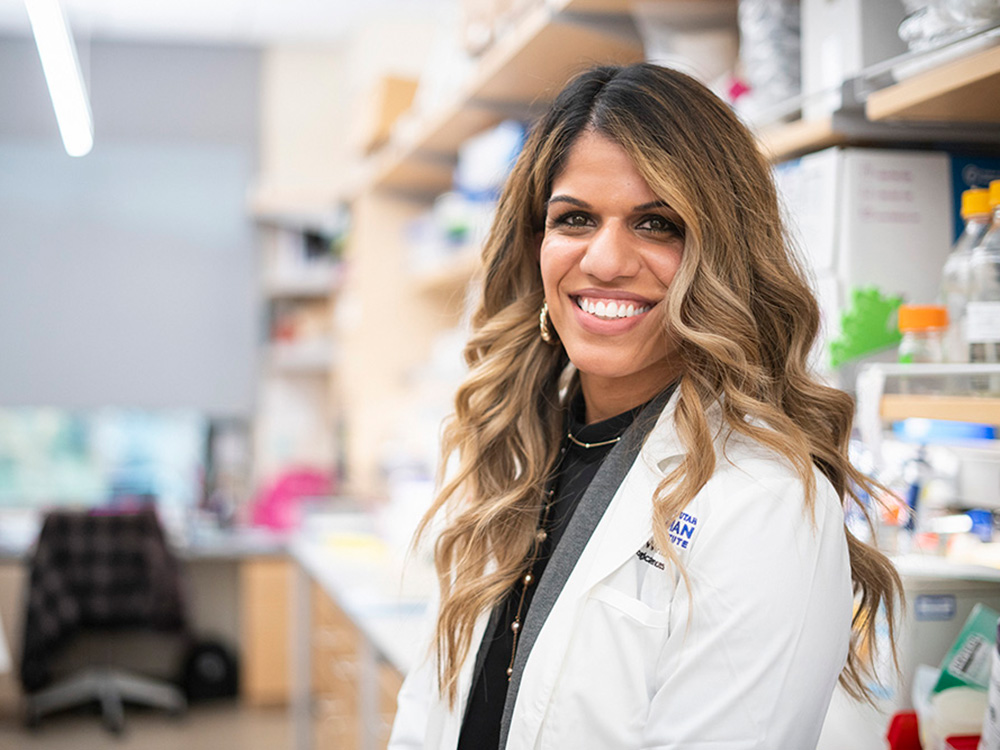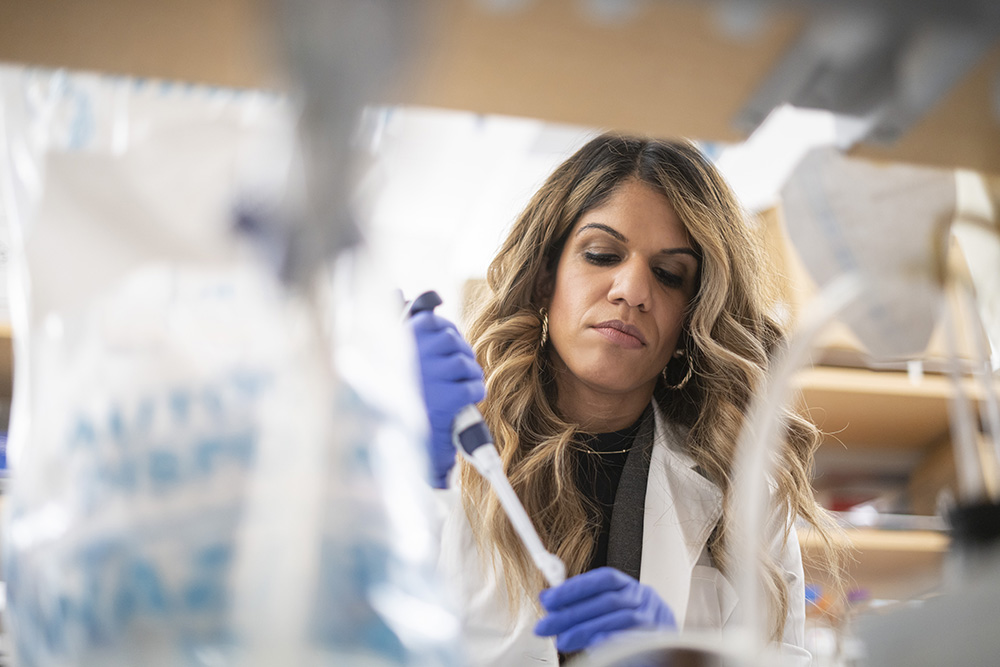
Aria Vaishnavi, PhD, a postdoctoral fellow at Huntsman Cancer Institute (HCI) at the University of Utah (U of U) has received a grant from the Lung Cancer Research Foundation (LCRF). The 2021 Scientific Grant Program awards 11 "investigators whose projects show promise to make a sustained and lasting impact on the field of lung cancer research and lung cancer outcomes."
With this grant, Vaishnavi will focus on gaining a better understanding of lung cancer caused by inhaled radon gas. Radon gas is the second leading cause of lung cancer and the leading cause for those who don’t smoke.
"I first met Dr. Aria Vaishnavi when she was a graduate student and I could tell immediately that she was a smart, ambitious, and very talented young scientist-in-training," says Martin McMahon, PhD, researcher at HCI, professor of dermatology at the U of U, and Vaishnavi’s mentor. "I was delighted to accept her into my lab as a postdoctoral fellow. This grant from the LCRF to study radon-induced lung cancer will allow her to expand her professional horizons as she makes her transition to her own independent research lab in the next year." McMahon adds Utah is the ideal place for this study because of low tobacco use among its residents and naturally high levels of radon gas.

There is no reliable way to identify whether lung cancer in patients is caused by radon gas. Vaishnavi hopes information from her research will help patients and doctors identify the best possible treatments.
Vaishnavi will assess molecular, cellular, and genetic changes within the lungs after prolonged exposure to radon gas. This allows Vaishnavi to find molecular signatures or biomarkers that help identify how the body reacts.
"I am deeply honored to receive this award from the LCRF and also very excited about this project," says Vaishnavi. "Radon gas levels are particularly high in the areas of Utah, Colorado, and Wyoming. As tobacco usage trends downward, improving our detailed molecular understanding of other causes of lung cancer, like radon, is more critical than ever."
Vaishnavi appreciates this project would not be possible without critical internal and external collaborations. These include support from Huntsman Cancer Foundation, and collaborators Heidi Hanson, PhD, MS, researcher at HCI and assistant professor of family and preventive medicine at the U of U; Joemy Ramsay, PhD, from the Anne Kirchhoff, PhD, Research Group at HCI; Wallace Akerley, MD, physician researcher at HCI and professor of internal medicine at the U of U; Sonam Puri, MD, physician at HCI and assistant professor of oncology at the U of U; Martin McMahon, PhD, researcher at HCI and professor of dermatology at the U of U; Maebh Jacob in the McMahon lab at HCI; Eric Gardner, PhD, from Harold Varmus’ lab at Weill Cornell Medicine; and especially Dani Dixon, PhD, and Antony Hooker, PhD, at Flinders University in Australia.